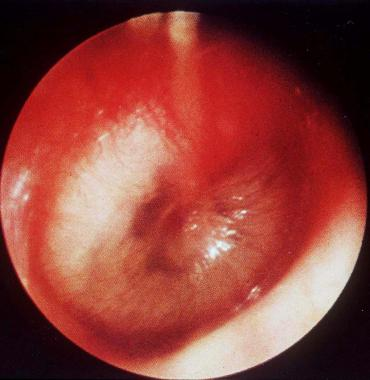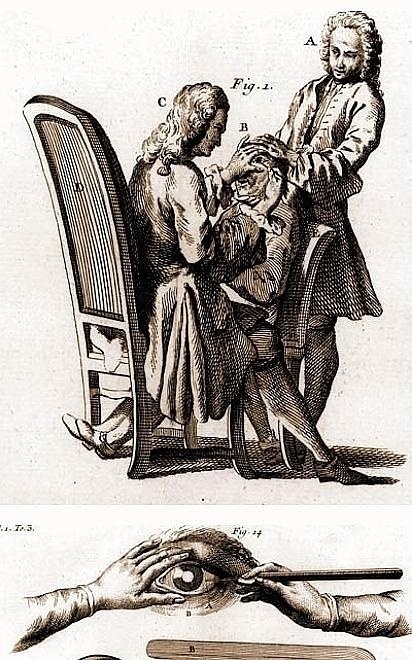What is the epigenome?
The epigenome is a mixture of chemical compounds and proteins that attach to DNA and tell the genome what to do. It turns genes on or off, controlling the production of proteins in a particular cell.1 These chemical compounds modify cell division, and may be inherited. Recent studies, however, show that environmental influences, such as diet and exposure to pollutants, can alter the epigenome.2 The epigenome is what makes each individual unique. It is what makes some of us have darker or lighter skin, controls the color and texture of our hair, and explains why some people are more introverted while others are extroverts.3
Read More
Topics:
Sklar,
Research,
Healthcare,
Surgical Instruments,
World Cancer Day
Surgical instruments are specially designed tools that assist health care professionals carry out specific actions during an operation. Most instruments crafted from the early 19th century on are made from durable stainless steel. Some are designed for general use, and others for specific procedures. There are many surgical instruments available for almost any specialization in medicine. There are precision instruments used in microsurgery, ophthalmology and otology. Most surgical instruments can be classified into these 4 basic types:
Read More
Topics:
Sklar,
Sterile Disposables,
Research,
Healthcare,
Single-use Instruments,
Surgical Instruments
Heart disease is the leading cause of death for both men and women, and about half of Americans have at least one risk factor. Half-a-million coronary bypass surgeries are performed each year in the US.
Open-heart surgery is a procedure where the chest needs to be opened to correct problems with the heart. Depending on the type of surgery, the surgeon may also have to open the heart. According to the National Heart, Lung, and Blood Institute (NHLBI), the most common heart surgery is the coronary artery bypass grafting (CABG)1 to treat severe coronary heart disease, which happens when plaque builds up inside the arteries.
Read More
Topics:
Sklar,
Healthcare,
Surgical Instruments,
Cardiovascular
Acute ear infections affect one in ten people worldwide, and children aged five and under account for half of the cases. Five percent of those with the acute stage eventually develop chronic otitis media (COM) with a significant portion of patients under age five.1 This condition is a persistent infection which does not heal properly and oftentimes does not respond to medical treatment. In these cases, surgical intervention may be required to get rid of the infection.
Read More
Topics:
Sklar,
Research,
Healthcare,
Single-use Instruments,
Surgical Instruments,
ENT
The Early Years
What is known today as ophthalmology dates back to the Bronze Age. Initial written documentation regarding the eyes was recorded in 2250 B.C. Hammurabi, The king of Babylon, declared a series of laws with important instructions specifically directed to those who dared handle the eyes in a careless way. One entry reads: “If a man destroy the eye of another man, they shall destroy his eye.”1
Read More
Topics:
Sklar,
Research,
Surgical Instruments,
Ophthalmology
Dental hygiene is important for both pets and humans. Just like you and I, cats and dogs may suffer from periodontal disease. Studies have suggested that 85% of all pets develop periodontal disease by the age of three. It is a progressive disease of the tissue surrounding the teeth, and is the main cause of tooth loss.1
There is not much difference between canine, feline and human teeth.
Read More
Topics:
Sklar,
Healthcare,
Dentistry,
Veterinarian,
Anesthesia
World Cancer Day (WCD)1 is on February 4. Sklar needs your help in spreading awareness, tips on prevention and the need for further research.
WCD began 17 years ago on February 4, 2000. It was established by the Paris Charter at the World Summit Against Cancer for the New Millennium in Paris. The Charter‘s main goal is to promote worldwide awareness, prevention, and further research of this illness to find a cure. By creating global networks and alliances made up of leading professional organizations around the world, the Charter aims to upgrade services provided to patients, sensitize common opinion and mobilize the global community against cancer. The last article of the Charter establishes February 4 as World Cancer Day.
Read More
Topics:
Sklar,
Research,
Healthcare,
World Cancer Day
West Chester, PA: Sklar Instruments is proud to announce a new collaboration with New Market Veterans, LLC, a Certified Service-Disabled Veteran Owned Small Business (SDVOSB) incorporated in Virginia.
Read More
Topics:
Sklar,
Press Release,
Healthcare,
New Market Veterans,
Surgical Instruments
A recent FDA ban on powdered medical gloves1 has brought attention back to airway inflammation and allergic reactions. It serves as a reminder to be vigilant about related latex allergy.
Read More
Topics:
Sklar,
Healthcare,
Single-use Instruments
Homeopathic remedies, excavated tools, sexual taboos, questionable medical ethics of testing on slaves, and handful of influential physicians have paved the way for the modern instrument of today.
Read More
Topics:
Sklar,
Research,
Healthcare,
Single-use Instruments,
OB/GYN












